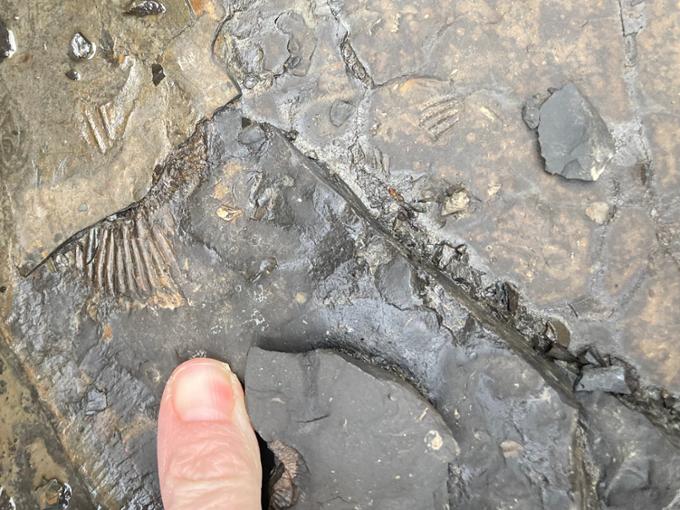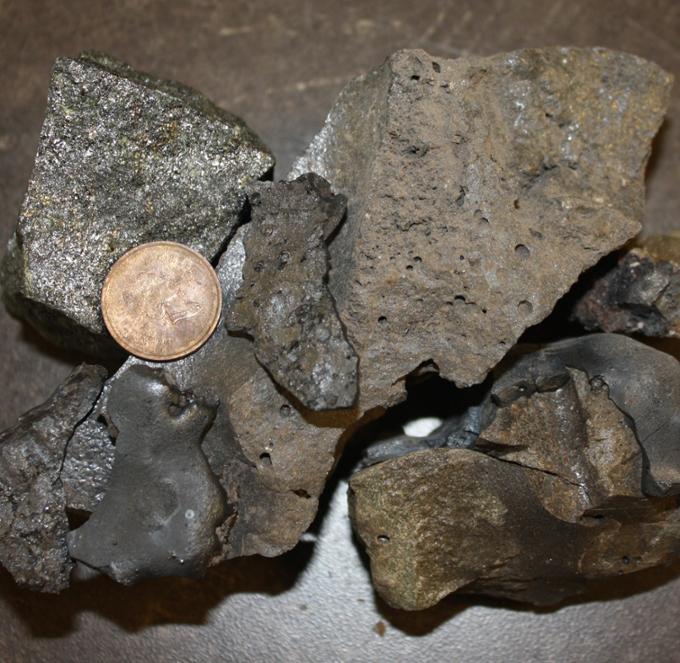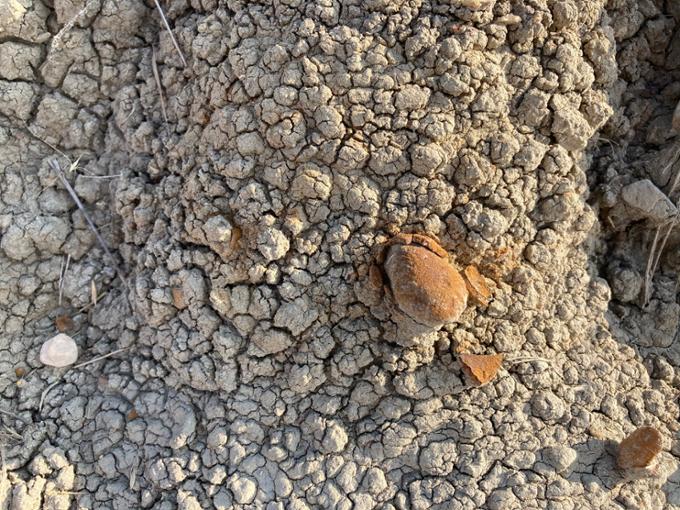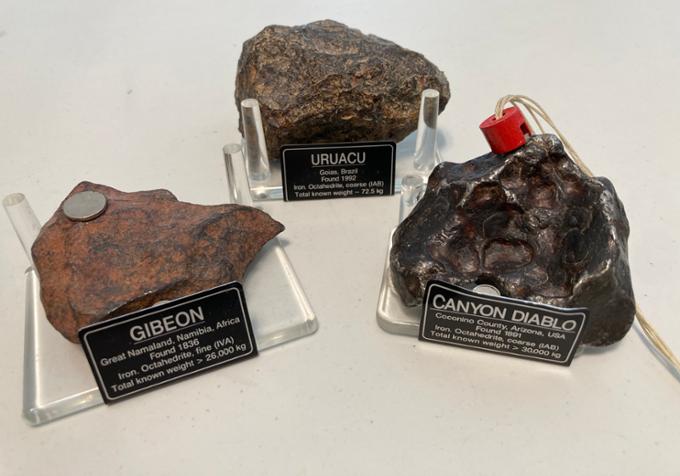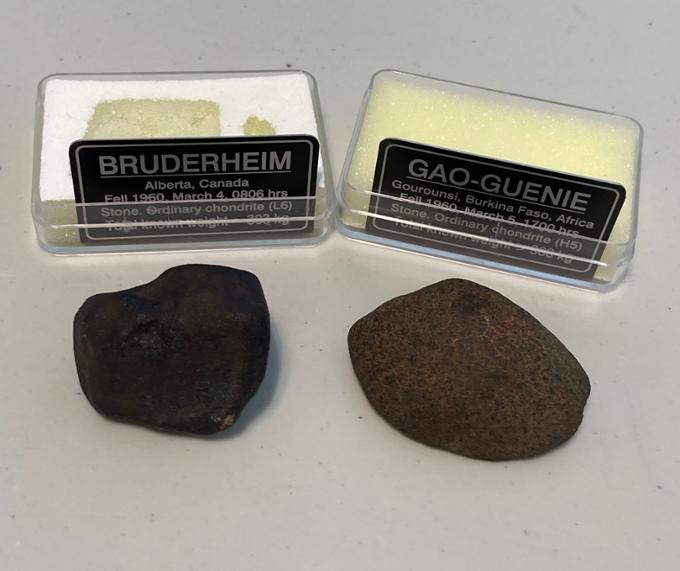Outreach
Do you have questions about a rock you have found, or are looking for information on getting a tour or having a geologist present to your group? We offer a number of outreach activities to the general public:
Identification of a Mystery Rock
Do you have a mystery rock you would like to identify? Send an email to earthsci@uregina.ca and members of our department will help you work out what you have. We’ll aim to get back to you with some information swiftly, and if it is a rock we are not able to identify via photos, we may arrange for you to bring it in or for someone to come and have a look at it!
Please include the following in your email:
- Subject line “Rock ID request”
- Information on where you found the rock and a description of the rock. For example: is it heavy? Can you scratch it with your fingernail or a piece of metal (i.e., nail/knife)? What colour(s) do you see? Does it have hole(s) in it? Cracks? Patterns? What size is it?
- Photos, ideally at least one at a distance with a measuring tape or ruler beside it for scale, and one or more closeup images to show the most obvious/interesting features of your rock.
Identification Guides
Common Rock and Fossil Specimens in Saskatchewan
A guide for identifying common rock and fossil specimens found in Saskatchewan museums. This is an excellent guide for identifying interesting rocks and fossils in Saskatchewan.
Meteorite Identification Guide
Think you might have found a meteorite? Here is a great guide from the University of Alberta about meteorites is helpful to check out!
Meteorwrongs: Meteorites vs. Slags
Material that looks like a meteorite is produced along with the formation of metals. Such material is called slag. This material is commonly found along railways, roads, and in parking lots in and around Regina. It is useful to compare photographs of and information on these “meteorwrongs” with your find!
Presentations for Groups
Our students and staff can bring earth science-themed science exhibits and activities to your school or community event. Hands-on activities include examination of rock, mineral, and fossil specimens, teaching quick ways to identify them, and, potentially, examination under a binocular stereomicroscope. We have a good selection of rock and mineral ID activities along with the use of maps or our amazing “sandbox” setup to show various landforms and geology in action!
We can come to your school/event or we can host hands-on events based on our department at the University of Regina. Contact earthsci@uregina.ca for more information (please include “outreach event request” in the title of your e-mail). Note that our ability to put on these events depends on volunteer availability, so it is best to contact us at least 1-3 months in advance especially during the school year (September to April).
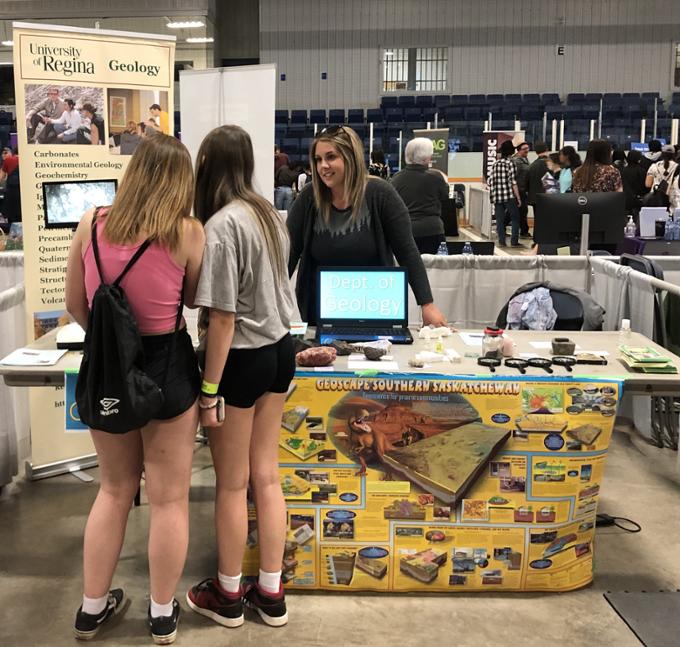
UofRocks Tour
A self-guided tour pamphlet has been developed as an introduction to the rocks, fossils, and minerals found at the University of Regina. This pamphlet covers a basic introduction to minerals, rocks, and fossils while providing examples and photos of various locations on campus where examples of each can be found.
This pamphlet can also be used in conjunction with other exercises for classes as it also contains GPS locations for many of the examples. There is also the possibility for a guided tour of the university; please contact us 1-3 months in advance if you would like a guided tour. For more information contact earthsci@uregina.ca or geologylabinstructor@uregina.ca (please include “UofRocks Tour” in the title of your e-mail).
Media Requests
Have a question for our faculty about a current event or topic with a connection to the Earth sciences? Please reach out to URegina Communications and Marketing (Media relations) for further information. For Earth science specific topics, you can cc our department head earthsci.head@uregina.ca.
Examples of media stories about our department from the past few years:
5 Feb 2021“U of R professors come up with creative workarounds to give students virtual lab experience: Instructors create videos, put together lab kits to give students hands-on learning.” Florence Hwang, CBC News.

24 May 2023
“Researchers unveil secrets of 1.5-billion-year-old uranium deposits. Ancient fluid in quartz provides key to finding new deposits.” Brian Owens / Canadian Light Source, Sasktoday.ca.
